As a woman in the construction industry, I have had to deal with verbal criticism, bullying and discrimination. They think I am not fit for the job. Men would sometimes be so rude as to say I should go home to my province and find a husband to take care of me or be a cashier in a department store.
My name is Myrna Pitaluna-Alngog. I’m 36 years old and I live in Cebu City, Philippines with my husband and one-year-old son.
I am the eldest in the family and when I was in college, my father lost his job. From being a homemaker, my mother became a fish vendor to help support our family. To be able to complete my studies I also worked as a domestic worker for three years, convinced that education would be the best foundation for my future.
I wanted to be a chemical engineer, but the only course at our local university was in Secondary Education, so I completed a degree in that.
I moved to Cebu City two weeks after I graduated in 2007. Moving from the province to the city wasn’t easy. There were many uncertainties and a fear of the unknown. But I was determined to find work.
My friend told me about a recruitment programme where his uncle was a lead trainer. At age 21, I was among the 17 women who were chosen to be trained as pioneers in the construction industry.
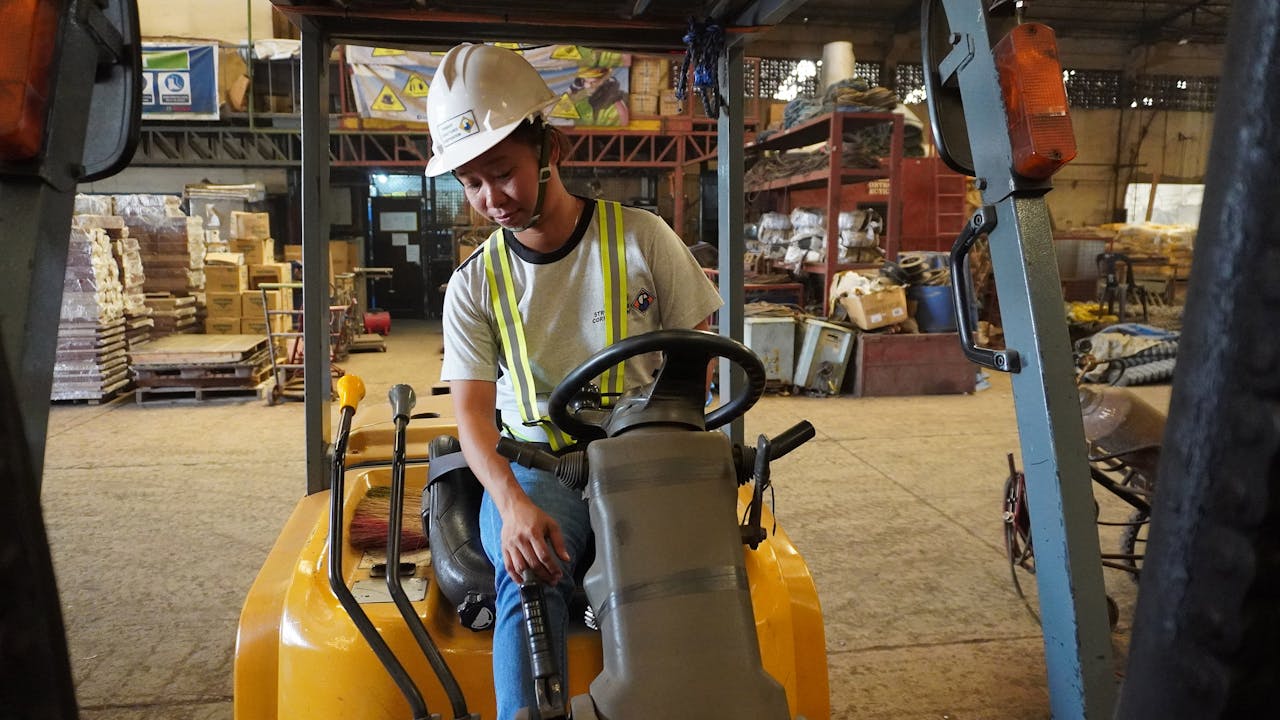
With skills training I can now operate all kinds of heavy equipment, including a forklift.
© ILO/OIT/Cebu Contractors Association, Inc.At first, I thought I would work in a factory in an export processing zone and operate small machines. I was surprised by all the big, heavy construction equipment around me. Imagine it, I am less than 150cm tall, and was being trained to operate various heavy equipment like backhoe-loaders, hydraulic excavators, bulldozers and payloaders.
I was scared, but my motivation to find a job was strong, so I underwent the training without knowing what the future would hold.
After the training I was hired as a regular employee and put on different projects. But to gain respect in this male-dominated industry, I have had to constantly prove myself, my worth and my skills.
Along the way I received many negative comments and criticisms about women working in construction. People would question why I was a construction worker when it wasn’t even aligned with my educational background.
To gain respect in this male-dominated industry, I have had to constantly prove myself, my worth and my skills.

Once, while operating an excavator, I accidentally cut the power supply of the entire road. Another time, I almost tipped over the equipment onto a stockpile of hazardous waste. My failures, struggles and challenges became my foundation to grow in my career in the construction industry.
I became a stronger, better version of myself. I just ignored what people said, prayed and move on. My only goal was to work and give my family a better life.
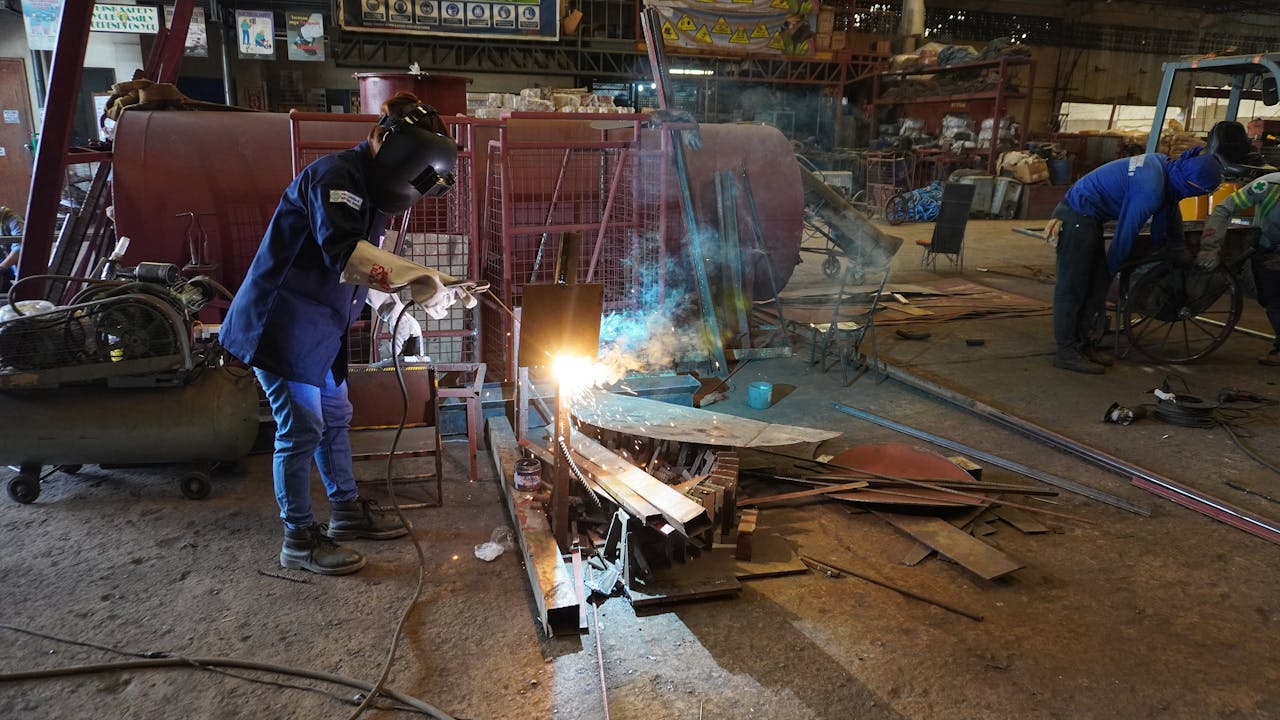
As my career has developed, I have learned many more skills including welding.
© ILO/OIT/Cebu Contractors Association, Inc.From operating heavy equipment such as skid loaders, hydraulic excavators and forklifts, I shifted to welding. I also received a technical vocational education and training (TVET) qualification, with national certificates in carpentry, painting, scaffold assembly, installation of reinforced steel bars, flux-cored arc welding and shielded metal arc welding.
I then completed a Civil Engineering degree at the age of 28 to align myself with the construction industry and connect everything I had learned.
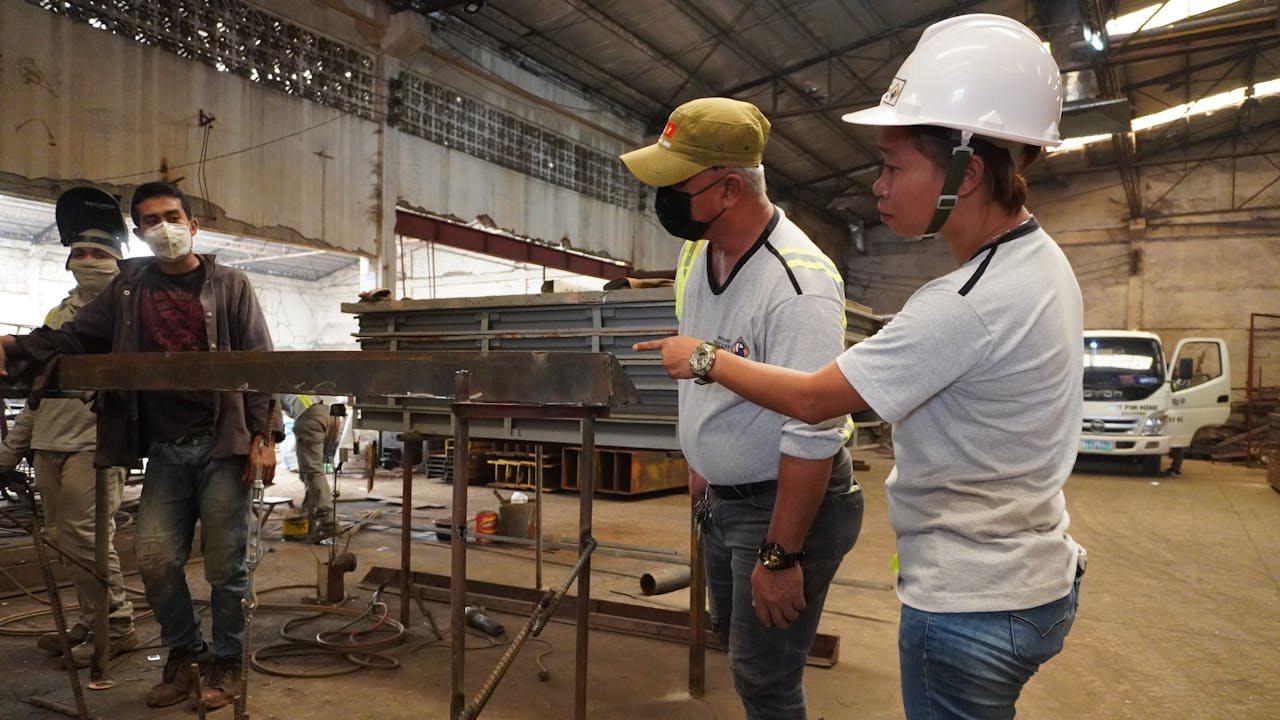
I am now a supervisor, managing a team of people.
© ILO/OIT/Cebu Contractors Association, Inc.As a supervisor, I am now leading seven teams with over 250 workers. I am also helping others as a trainer and assessor, including in shielded metal arc welding. I also train people in forklift operations and hydraulic excavators.
I recently trained and inspired almost a hundred trainees in the International Labour Organization's Skills for Prosperity Programme, with the Technical Education and Skills Development Authority (TESDA) and the Cebu Contractors Association, Inc. (CCA). Some of them are now working in our company.
More roads, buildings, and infrastructure indicate that the economy is recovering and growing. There are many jobs for skilled workers in the construction industry. With more skills, young people have a better chance at finding a good job. It’s important to me that we get the wheels rolling and make that happen.
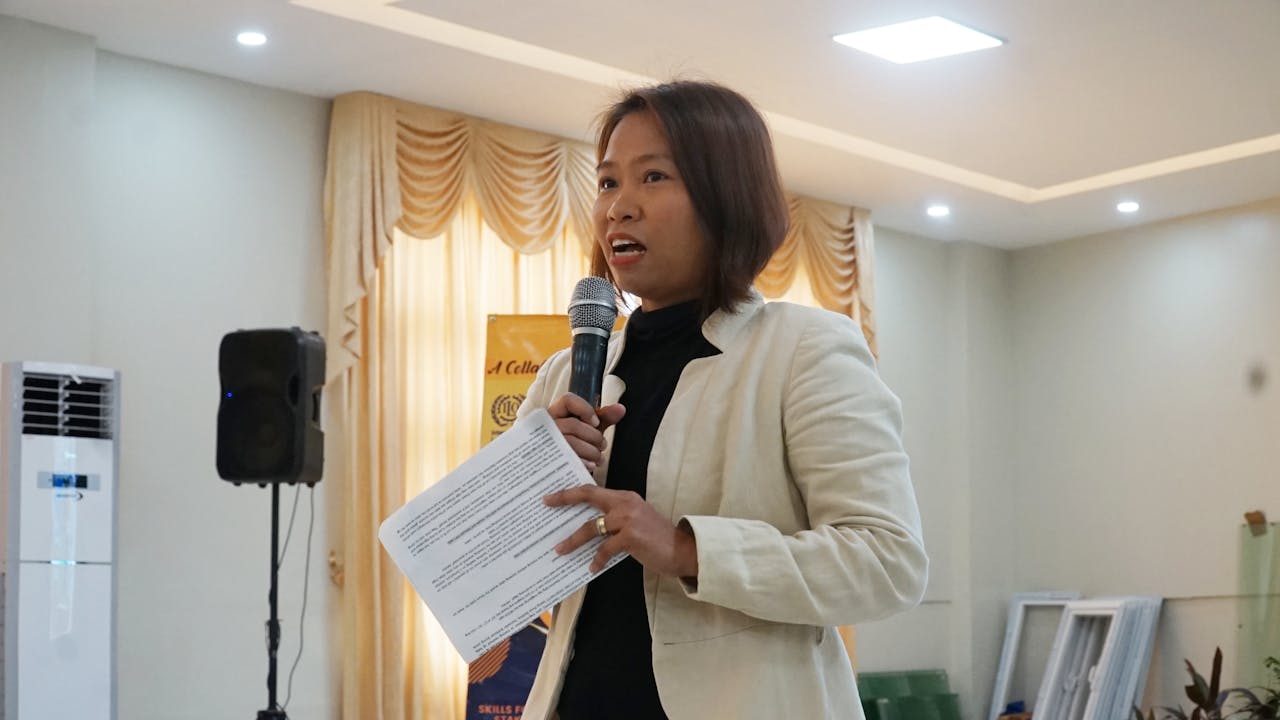
It was a great experience to share my knowledge with one hundred young people interested in working in the construction sector.
© ILO/OIT Minette RimandoThe advice that I share with young people is that every day is an opportunity to learn. The only constant in the world is change itself. If you do not engage in lifelong learning, you will be left behind and unable to adapt to an ever-changing future of work. You must compete with yourself, from the old you to the new you.
Strike the iron rod while it is hot. Grab the opportunity while it is there and shape yourself to it. When an iron rod reaches its melting point, a blacksmith can shape it to whatever he wants it to be. A split-second decision can change your entire future with the opportunity opened to you.
The current generation is digital, so expectations are different. You need to upskill to know about the new trends. You need to reskill to keep up with the current demands.
And lastly, focus on your goal, do not mind your critics. Instead see the positive side of that criticism and apply it to improve yourself. Start respecting yourself if you want people to respect you. Open yourself up to learning and have the will to succeed.
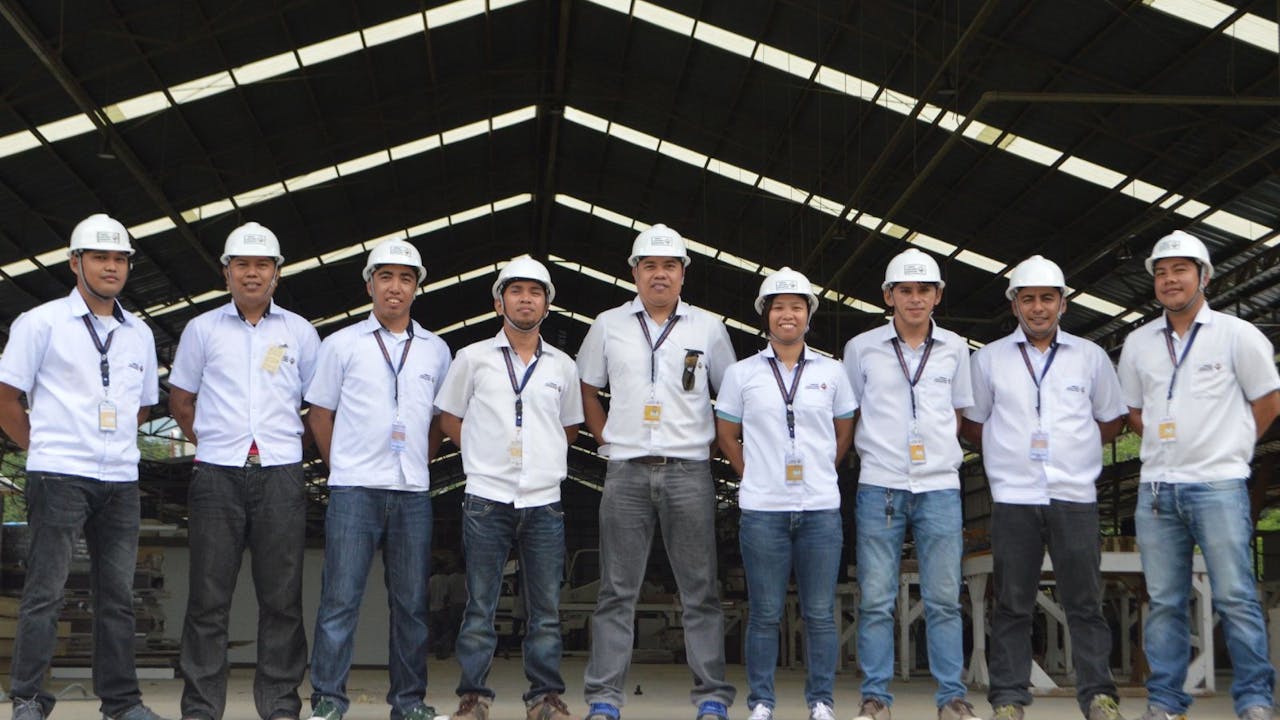
Being a woman does not stop us doing what is seen traditionally as a man’s job. The time will come when people will no longer be surprised to see us women working in construction.
© Myrna Pitaluna-Alngog